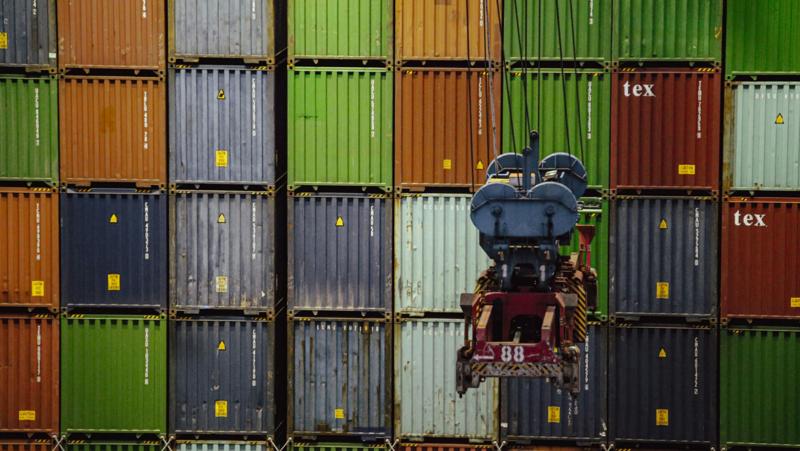Several small business owners now await a ruling from a federal court on the legality of the slate of tariffs President Donald Trump announced on April 2.
“Trump made a bad business decision, and he needs to reverse it immediately before there are some really big, bad consequences that we’ve only started to see the very beginning of,” Victor Owen Schwartz said in a post-court conversation with media. Schwartz is the founder of New York-based wine and spirits company V.O.S. Selections and is the lead plaintiff in the case.
The U.S. Court of International Trade heard arguments Tuesday from the Liberty Justice Center, the public interest law firm representing V.O.S. and several other small businesses anticipating “existential” impacts from the tariffs, and lawyers representing the administration.
The center argued that the president does not have the constitutional authority to impose tariffs through the International Emergency Economic Powers Act, the emergency powers Trump used on April 2 to roll out a wave of new tariffs on many of America’s trading partners.
“If this were actually the right interpretation of [the International Emergency Economic Powers Act], it would probably be the biggest delegation of power that the courts have considered since the 1935 New Deal Era Schechter Poultry case,” said Ilya Somin, a law professor at George Mason University and one of the lawyers for the plaintiffs in the case. In A.L.A. Schechter Poultry Corp. v. United States, the U.S. Supreme Court unanimously struck down parts of the National Industrial Recovery Act, saying it improperly gave President Franklin D. Roosevelt legislative powers.
Trump signed an executive order declaring a state of economic emergency due to the U.S.’s outstanding trade deficits with many other countries, many of which were caused by widespread unfair trade practices, according to the president. A trade deficit occurs any time a country spends more on imports from another country than it makes on exports to that country.
Senior counsel at the Liberty Justice Center Jeffrey Schwab said he’s optimistic about their chances for a favorable ruling after submitting six arguments in the case.
“If the court agrees with any one of them, then it should rule in our favor,” Schwab said. “I suppose the court could agree with us on all six or any combination thereof. So, my math’s not great, but that’s a lot more combinations than six.”
The plaintiffs argue that the International Emergency Economic Powers Act does not authorize the president to impose tariffs at all, but even if it did, it still requires an economic emergency and an unusual, extraordinary threat to be invoked. Current circumstances don’t meet those requirements, Schwab said.
“We’re basically arguing for a normal, intuitive definition of ‘emergency’ and of ‘extraordinary and unusual’… It can’t be something that’s an ongoing thing that’s been there for decades,” Somin said. “An emergency is a sudden and unexpected crisis,” unlike many of the trade deficits and non-tariff barriers other countries have with the U.S, according to Somin.
They also contend that the president imposing sweeping tariffs would require specific and clear delegation from Congress, as Congress is the body endowed by the Constitution to tax and a tariff is a tax on imported goods.
The court is set to hear another similar case next week challenging the president’s tariffs, brought by 12 states and led by Oregon.
“I think there’s a good chance there will be similar, if not identical, rulings on these two cases,” Somin said.
The V.O.S. lawsuit specifically challenges the tariffs imposed on April 2, but the multistate lawsuit also challenges other tariffs Trump has enacted since entering office.
The judges presiding over the case are Gary Katzmann, Timothy Reif and Jane Restani. Katzmann was appointed by former President Barack Obama, Reif by Trump and Restani by former President Ronald Reagan. Two ruling together would qualify as a majority decision.
The U.S. International Trade Court is a specialized trial court with the authority to grant nationwide injunctions. The court previously denied the plaintiff’s motion for a preliminary injunction, saying they did not do enough to demonstrate that the tariffs would cause the small businesses “immediate and irreparable harm.”







